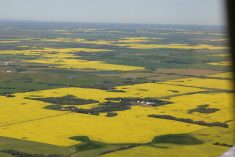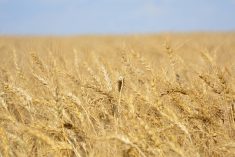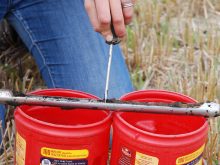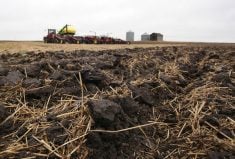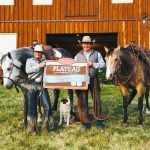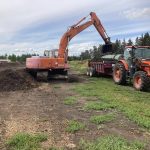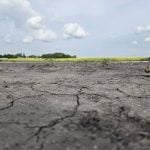An Alberta custom sprayer says volunteer canola has become a major headache for growers in his area.
“We have wheat that is getting ready to be desiccated with all this green stuff in it that we can’t kill,” said Barry Halvorson, who runs a spraying operation in Metiskow, Alta.
The problem is worse than usual this year because a cool spring delayed weed development and made the volunteer canola plants hardier.
However, Halvorson also points a finger at Monsanto, the makers of Roundup Ready canola.
Read Also
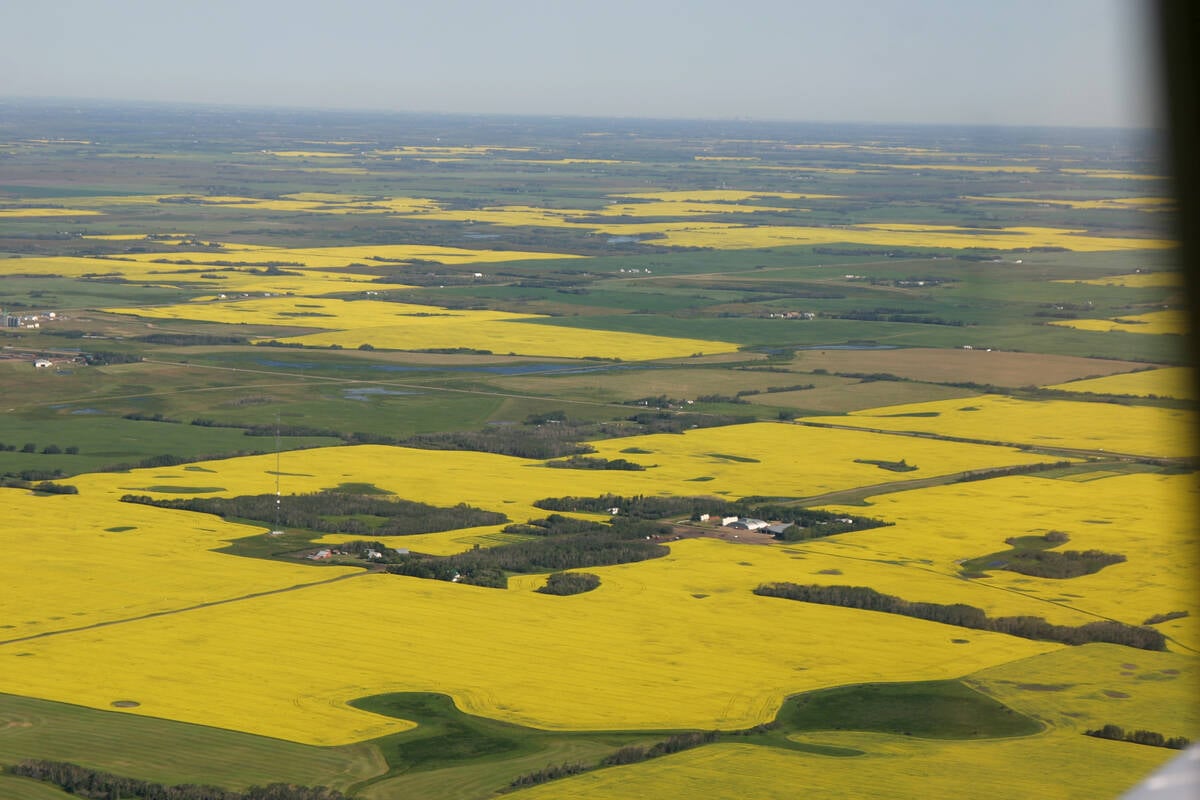
Increasing farmland prices blamed on investors
a major tax and financial services firm says investors are driving up the value of farmland, preventing young farmers from entering the business. Robert Andjelic said that is bullshit.
“They’ve created the worst weed in the world,” he said.
Some of the volunteers weren’t mature enough to be killed when he sprayed fields in-crop, but he has also had trouble controlling the weed in chemfallow fields.
“The fact that they put a product on the market that had no way to be controlled is the worst problem,” he said.
Monsanto Canada spokesperson Trish Jordan said volunteers may be cropping up in pockets of the Prairies this year, but most growers who used pre-seed or in-crop control products shouldn’t have problems.
“Based on the number of calls we’ve had, I wouldn’t say it’s a significant issue,” she said.
Jordan said west-central Alberta was bone dry in the early part of the growing season and then received late rain, which may have caused a flush of volunteer canola in wheat fields.
No control options are available to growers at this point in the growing season, other than swathing their wheat crops at the right time.
Alberta Agriculture crop specialist Neil Whatley said complaints about the weed are becoming more prevalent, and the weather conditions in 2009 haven’t helped matters.
“The volunteer canolas are more difficult to control in a year like this because the early emerging seedlings become hardened off,” he said.
Harry Brook, also a crop specialist with Alberta Agriculture, said volunteer canola is definitely one of the top 10 weeds the department’s call centre receives questions about.
However, he said it is hyperbole to suggest it is the worst weed in the world. A number of Group 2, 4, 9 and 22 herbicides are available to deal with it when applied pre-season or in-crop, he added.
Growers in west-central Alberta might have ugly looking fields, but Brook doesn’t expect it will cause too much economic hardship.
“It will be very visible having canola volunteers, but I don’t think it’s going to effect yield much.”
Halvorson said a lot of crops in his area are so poor, farmers want to straight combine them, but they can’t because there’s too much green in their fields.
Swathing adds extra expense and they will have to wait for the canola volunteers to dry down, exposing the wheat swath to potential downgrading caused by rain.
Halvorson said he has received an earful from his customers.
“They’re all phoning me asking what the hell they can do and I tell them there’s nothing. And I’m the one getting yelled at.”
Brook said drying time could definitely be a problem, and crops could rot in the swath if there is too much green material.
Another concern is that the untreated volunteers will lead to new seedlings next year, which would be problematic in areas where farmers are trying to avoid clubroot by sticking to a one-in-five-year canola rotation.
Brook said this would have been a good year for Monsanto’s Fastforward pre-harvest herbicide, a combination of Liberty and Roundup that the company sold about five years ago.
It is still registered but not widely distributed.





